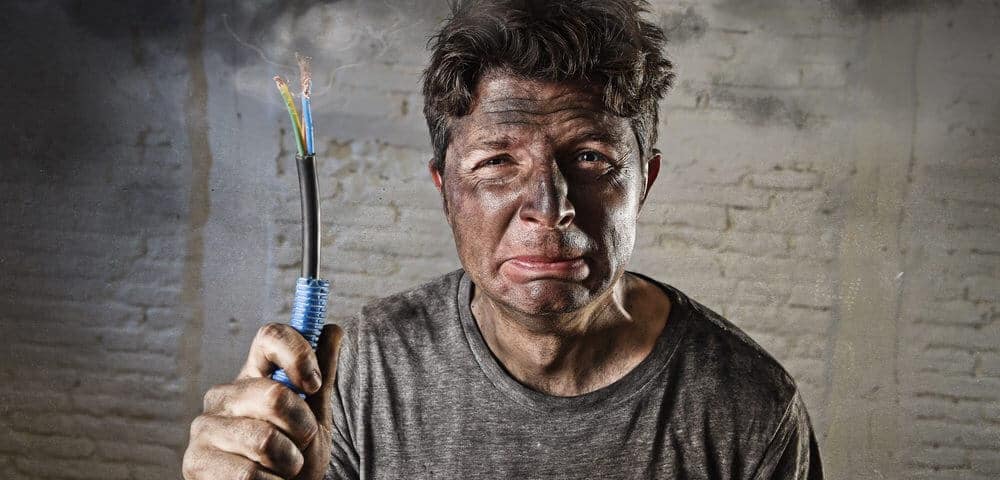
Why You Should Never Attempt DIY Electrical Repairs
With more than 1,000 deaths per year in the United States alone attributed to electric shocks, there is a good reason to leave electrical repair to the professionals. A licensed electrician has had years of training and supervision to gain skills that enable them to work safely in certain environments.
DIY culture is growing rapidly in the United States, but there are some tasks that should always be left to the experts. And electrical issues are one of them.
While you shouldn’t attempt DIY electrical repairs, you can still do your part. Always be on the lookout for warning signs of electrical problems. Some signs include lights dimmings or flicking, buzzing sounds, or the circuit breaker tripping regularly. If you notice any of these warning signs, you should consult a qualified electrician—otherwise, you run the risk of harming yourself and your family.
Fire Hazard
When an untrained person attempts electrical DIY, they are putting themselves and the people around them at risk. In the U.S. each year, 51,000 house fires are caused by electrical components and systems. Faulty electrical wiring is a serious risk as it can result in an electrical fire weeks or months after it was installed. This can lead to a false sense of security or confidence that you have done the job correctly.
Inspection
Some states require a home inspection. A qualified electrician will ensure that all electrical components can pass an inspection before they are signed off. DIY homeowners are unable to complete this check, which can lead to substantial fines later down the track.
If that isn’t enough to put you off, in some states it is illegal to perform electrical work without a permit. This rule can also apply if you own a business. You can face fines and even jail time if you are caught doing electrical work without a permit or license.

Risk of Injury
There is a reason electricians complete on average 600 hours of in-class training covering safety, electrical circuits, blueprint reading, etc, and on-the-job supervision. This gives them the skills and experience to minimize the risk of injury and safety risks to themselves and the people around them.
People who try DIY electrical work at home with little-to-no knowledge of the electrical components they are working with run the risk of injury such as electric shocks. These shocks can be mild but in extreme cases, the electrocution can have extreme repercussions.
In most residential homes across the USA, the standard voltage is 110 volts; however, for some appliances such as ovens, it can be much higher. Any mistakes while doing electrical repairs could lead to fatal electrocution. For this reason, it should always be left to licensed electricians.
DIY Electrical Repairs May Result in Costly Fixes in Future
Making mistakes is part of the learning process. Unfortunately, when it comes to electrical components, errors can be costly. If your DIY electrical repair attempt does not work out and you have to call in a professional to fix your work, it may take longer than it would have to fix the original issue.
Loose wires or faulty wiring are easy fixes for a professional. So it’s generally more cost-effective to the pros to get the job done right the first time.




